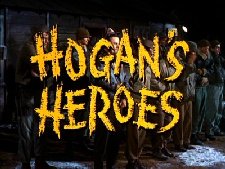|
Bring Hogan's Heroes Home! (Hover over the link)
Hogan's Heroes - The Complete Series
Hogan's Heroes - The Complete First Season
Hogan's Heroes - The Complete 2nd Season
Hogan's Heroes - The Complete Third Season
Hogan's Heroes - The Complete Fourth Season
Hogan's Heroes - The Complete Fifth Season
Hogan's Heroes - The Sixth & Final Season
|
OGAN'S HEROES Show Type: Sitcom First Telecast: September 17, 1965 Last Telecast: July 4, 1971 Broadcast History: September 1965 – September 1967, Friday 8:30-9:00 on CBS September 1967 – September 1969, Saturday 9:00-9:30 on CBS September 1969 – September 1970, Friday 8:30-9:00 on CBS September 1970 – July 1971, Sunday 7:30-8:00 on CBS
Cast Colonel Robert Hogan..... Bob Crane Colonel Wilhelm Klink..... Werner Klemperer Sergeant Hans Schultz..... John Banner Louis LeBeau..... Robert Clary Peter Newkirk..... Richard Dawson Sergeant James Kinchloe (1965-1970)..... Ivan Dixon Sergeant Richard Baker (1970-1971)..... Kenneth Washington Sergeant Carter..... Larry Hovis Helga (1965-1966)..... Cynthia Lynn Hilda (1966-1970)..... Sigrid Valdis
SYNOPSIS
|








